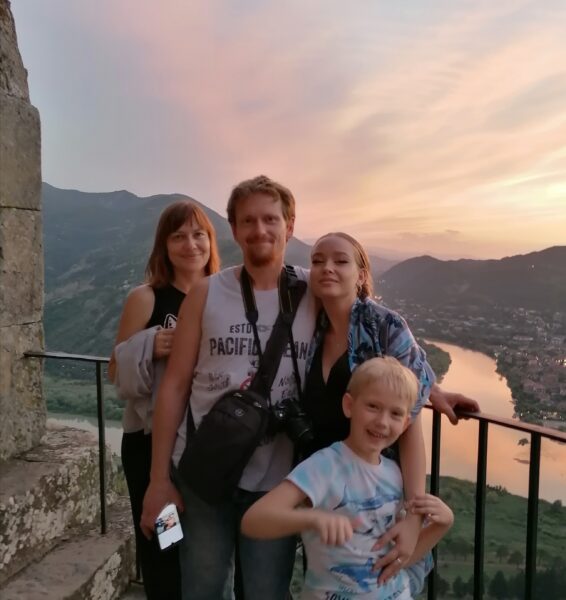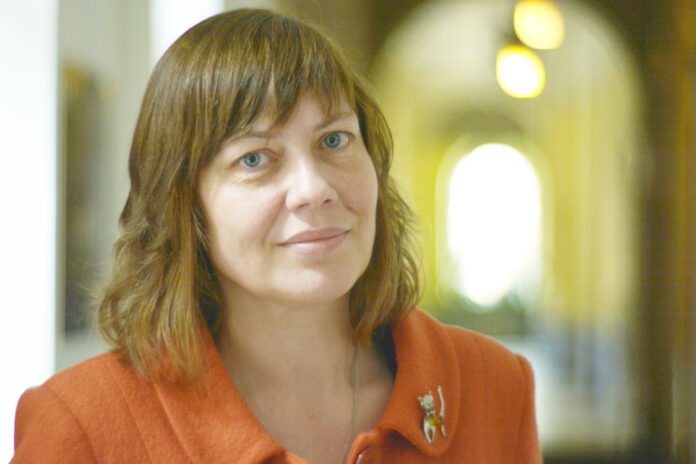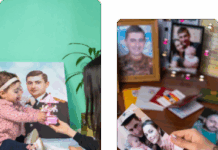YEREVAN — Elizabete Taivane is a Latvian expert in the field of religious studies, specifically Buddhism. She is an associate professor at the University of Latvia in Riga, where she has been teaching since 1996, and is the author of several articles and books on religion. Since 2021 she has been visiting Armenia, the country of her maternal grandfather, on a regular basis.
I met her through a mutual friend, and the following conversation ensued. After greetings in Armenian, we switched to Russian, although our correspondence continues in English.
Elisabete, I always wonder what circumstances lead to someone’s exploration of their unknown side. How was it for you?
My story began in Moscow, where I was born and lived for 19 years. But from a young age I missed Latvia, where my father came from and where our relatives on his side lived. We traveled there quite often, usually in the summer. I always felt a connection with Latvia, even though my dad did not teach me Latvian. In my teenage years, when my personality was forming, I started to learn the language on my own. Thanks to moving to Latvia shortly before country’s independence and enrolling in the University of Latvia, I managed to complete my Latvian in a short period of time. So, my first identity was Latvian, which I loved with all my heart. Looking back, I can say that at that time in my youth I did not realize that my inner constitution was Armenian, not Latvian at all. At the same time, I had practically nothing to do with Armenia. I only knew that my grandfather Hmayak Arakelyan, a well-known photo correspondent in Rostov-on-Don in the 1950-60s, was a pure-blooded Armenian and a native of the small village of Por, which is located near Vaik in Armenia. Unfortunately, my beloved grandfather died before I was born, but I know him well from letters to my mother, which she carefully keeps until now.
But did you have any Armenian traditions in your family?
Only in the kitchen. My mom cooks tolma and gata, which she calls kiata (Vaik dialect). She remembers a little Armenian, some phrases, she told me about my grandfather who loved her and her sister fondly, but that’s about it. My mother was not interested in her Armenian relatives, living in Russia and being surrounded by numerous relatives from her mother’s Polish-Ukrainian side. When I was already a student at the Theological Faculty of the University of Latvia, one day I got an Armenian greeting card in my hand. The Armenian script aroused an interest and some emotional attachment in me. I approached my father, Leon Gabriel Taivans, Professor at the University of Latvia, and told him I would like to learn Armenian. My father found the Armenian Sunday school in Riga. There I was equipped with primers and some books in Armenian, which allowed me to start learning Armenian on my own. I met Valda Salmiņa, Latvia’s only Armenian translator, and that was a great asset. I developed a warm friendship with Gohar Aslanyan, who studied at the University of Latvia and now translates literature from Latvian into Armenian, as well as her colleague Naira Khachatryan. I had big plans to write a doctoral thesis on Armenian theology, but things did not work out with my supervisor, and I had to reorient myself to comparative religion. No doubt it was an excellent choice for my career, but doctoral studies, delving into the tradition of Tibetan Buddhism, intensive teaching at several universities, and the birth of my children Anush and Dominik separated me from Armenia for years.









